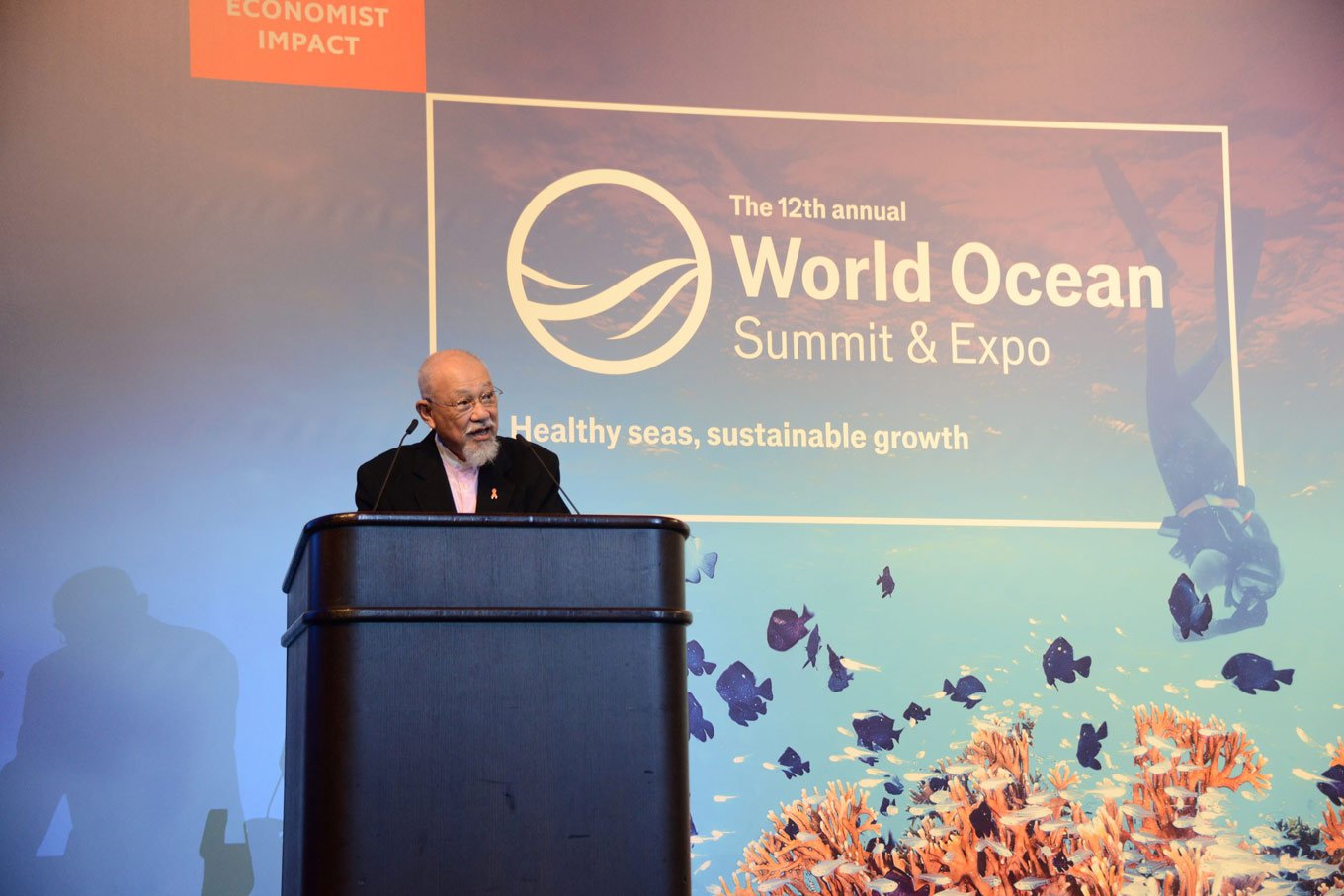Seminar on Fully Autonomous Shipping HeldWith more than 450 remote and in-person participants, increasing momentum toward general introduction
A seminar to provide the latest information related to fully autonomous shipping was held at The Nippon Foundation’s head office in Tokyo on July 20. The seminar included a keynote address by an expert in autonomous shipping, a panel discussion on the potential for its implementation, and the announcement of the second stage of the MEGURI2040 Fully Autonomous Ship Program being carried out by The Nippon Foundation. Participants included representatives of companies and research institutions who are developing automation technologies for autonomous ships and shipping, and university students who intend to enter maritime fields. They expressed their high hopes for the implementation of fully autonomous shipping, noting that the diverse panel gave updates on the latest trends and that the seminar generated new interest.
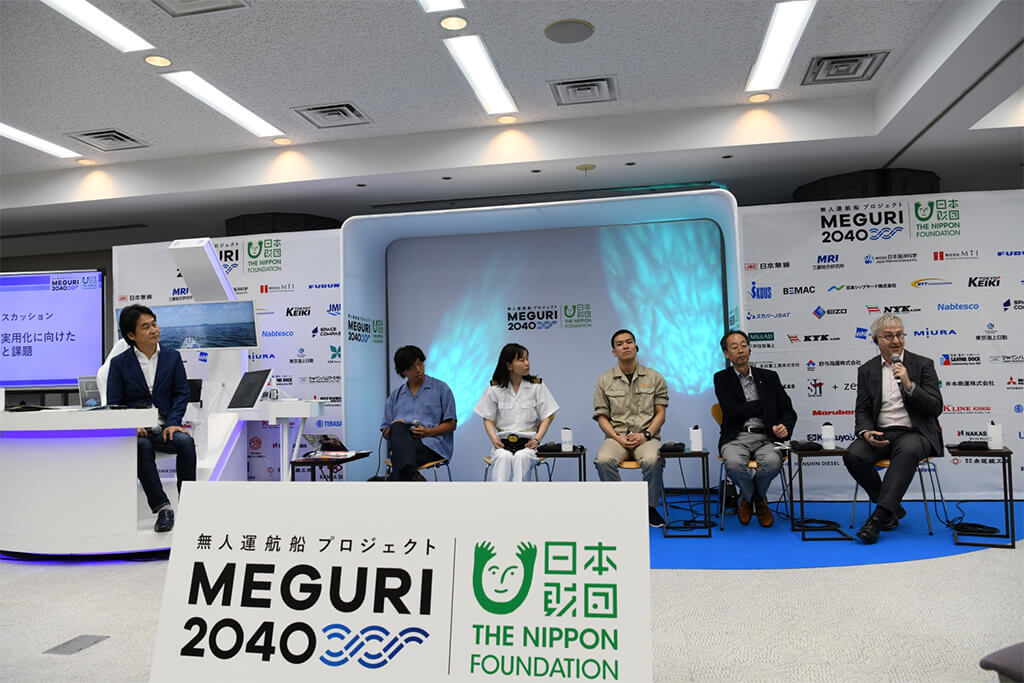
What the future holds for fully autonomous ships
The seminar opened with greetings from Yohei Sasakawa, Chairman of The Nippon Foundation. Mr. Sasakawa noted that today, a sense of speed is very important for innovation. The participation of diverse human resources, including people from other sectors and younger people including Generation Z, as well as a structure to support them are indispensable. He encouraged participants to work toward implementation in 2025 with a sense of speed.
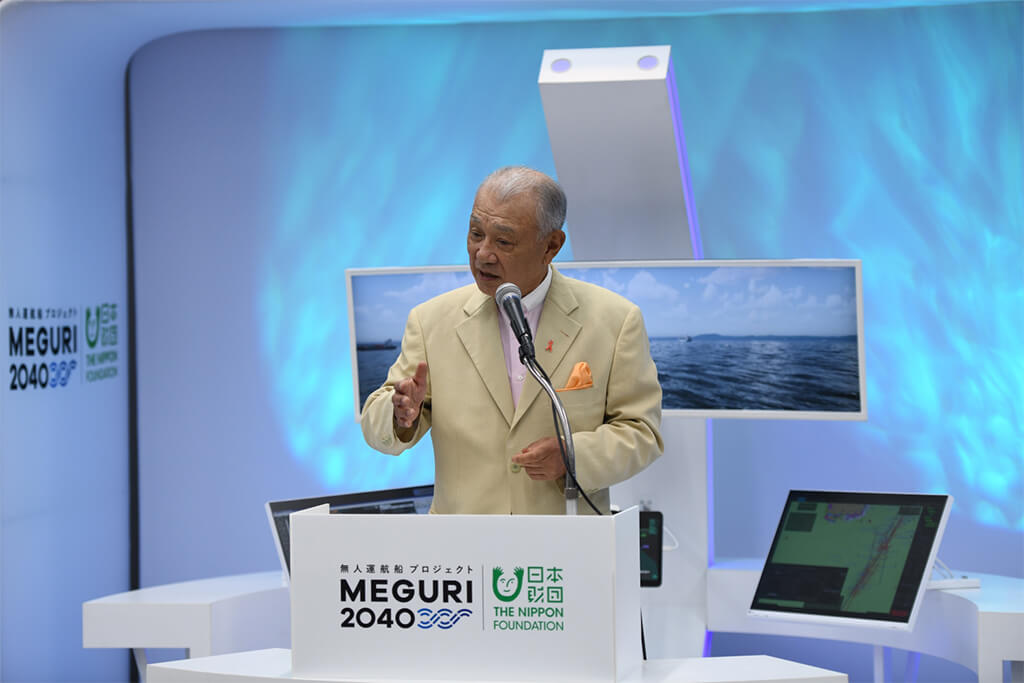
Next, Vice-Minister for Transport, Tourism and International Affairs Atsushi Uehara, of the Ministry of Land, Infrastructure, Transport and Tourism, which supported the seminar, welcomed participants. He commented that if Japan’s marine transport, which supports people’s daily lives and economic activity, is to continue to play this important role, it will become increasingly important to address the issues of maritime accidents caused by human error, the aging of crews, and intensifying international competition in shipbuilding. He added that he hopes Japan will use the results gained through MEGURI2040 and pursue public-private sector cooperation to take the lead in formulating rules for fully autonomous shipping.

The first part of the seminar was a keynote address titled “Accelerating the Safe Adoption of Autonomy” by Luis Benito, Customer Success Executive Partner at Lloyd’s Register, Japan. Mr. Benito provided an update on the current situation in various countries, including the development of fully autonomous shipping and vessel automation in Europe (Britain, Norway, and Finland) and in Asia (Japan, South Korea, and Singapore), as well as the International Maritime Organization’s formulation of rules for fully autonomous shipping.
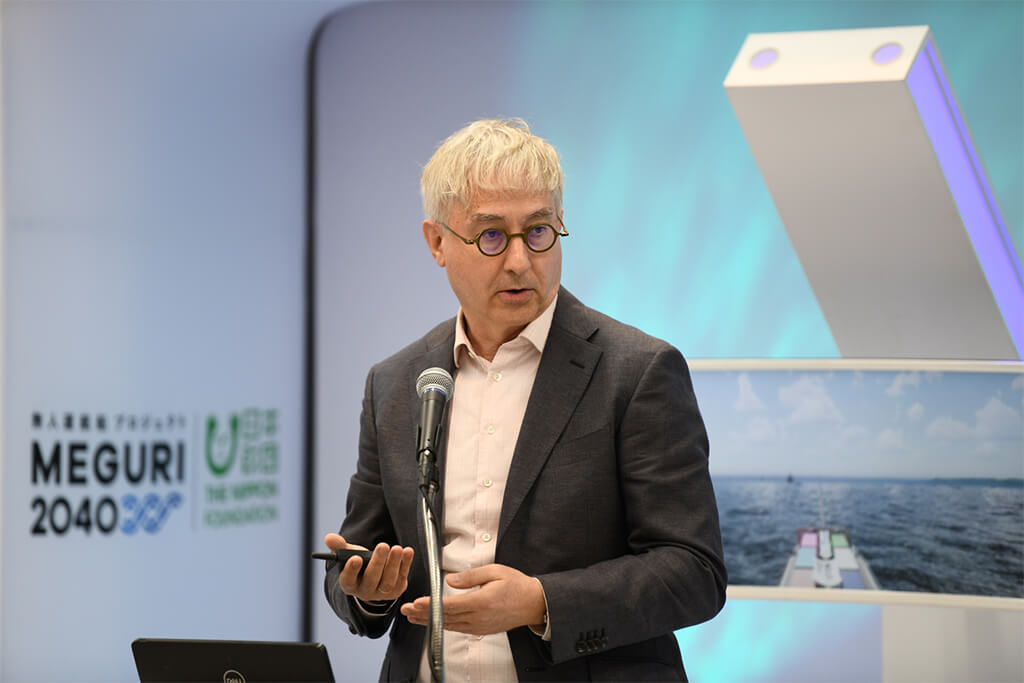
The keynote address was followed by a panel discussion moderated by Takeshi Natsuno, Specially Invited Professor and Director of the Cyber Informatics Research Institute at Kindai University. The panel members were professionals with diverse backgrounds: Manabu Tanabe, Head of Ferry business unit, Head of Transportation & Travel business unit, Senior managing executive officer, RYOBI HOLDINGS CO., LTD., a logistics and travel operator; Tatsunori Kaneko, Third Officer, Kinyu Ship Management (coastal shipping); Haruka Nishimura, Chief Officer, NYK Line (international shipping); Yuki Saji, President and CEO, Boldly (autonomous shuttle bus operator); and Mr. Benito. They discussed current crew shortages, how autonomous navigation technologies can reduce crew workloads and the need for deregulation to implement automation, and also introduced recent examples in the field of autonomous navigation overseas and shared their thoughts on how to proceed going forward.
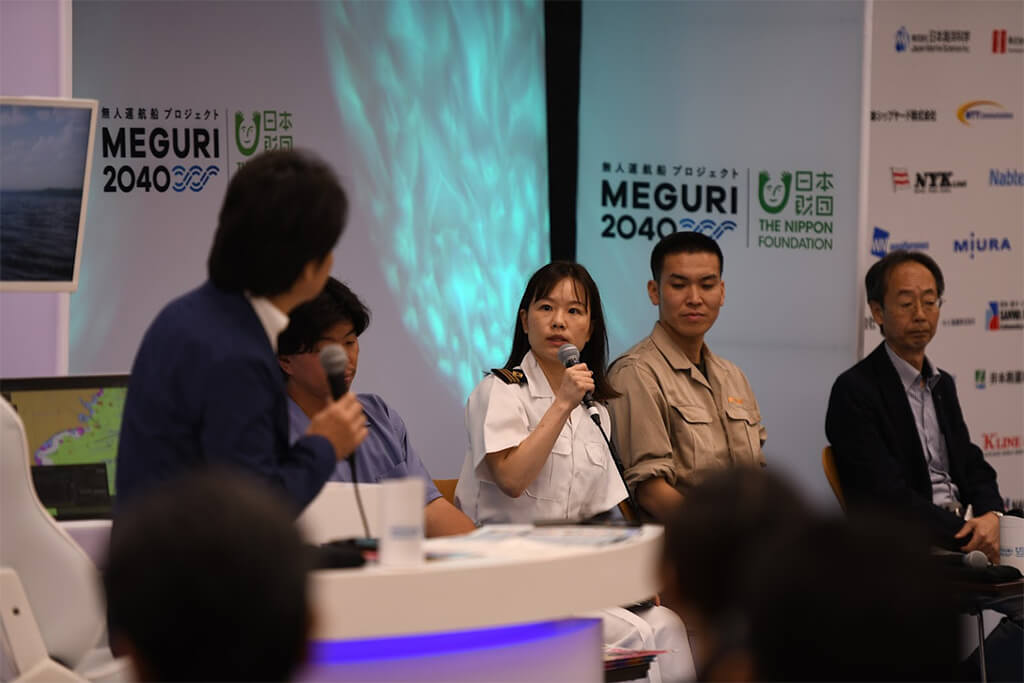
The second part of the seminar was an overview by The Nippon Foundation Executive Director Mitsuyuki Unno of Stage 2 of the MEGURI2040 Fully Autonomous Ship Program being carried out by The Nippon Foundation. The second stage of the project aims to reach a partial level of automation in fully autonomous navigation (equivalent to Level 4 in autonomous automobiles) in four vessels – a newly built container vessel, an existing container vessel, a remote island passenger ferry, and a roll-on/roll-off (RORO) cargo ship – for practical implementation by 2025.
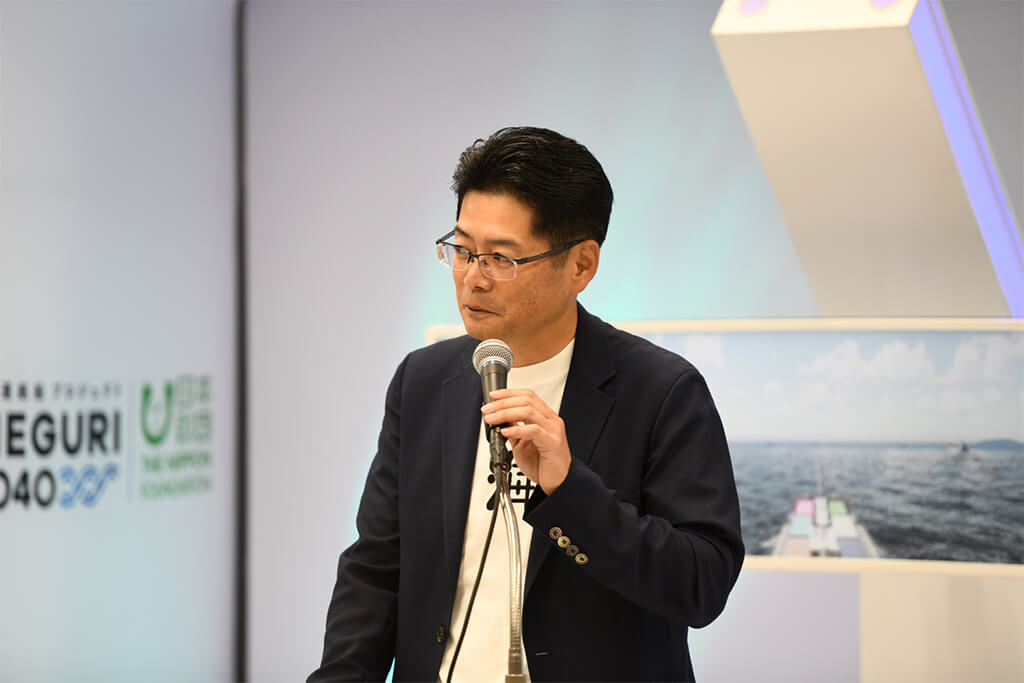
The final presentation was a project summary by Satoru Kuwahara, Project Director of the MEGURI2040 Consortium, including the consortium’s plans to 2025. The consortium comprises 51 organizations across industries, and Mr. Kuwahara explained how they intend to achieve social implementation through technological development and by creating an environment for fully autonomous navigation.

Related Links
- The Nippon Foundation MEGURI2040 Fully Autonomous Ship Program
- Targeting 2025 for Fully Autonomous Navigation (2022.06.02)
- 6th Demonstration Test of Fully Autonomous Ship Navigation Successfully Completed (2022.03.14)
- 5th Demonstration Test of Fully Autonomous Ship Navigation Successfully Completed (2022.03.01)
- 3rd and 4th Demonstration Tests of Fully Autonomous Ship Navigation Successfully Completed (2022.02.07)
- Successful fully autonomous navigation of large, high-speed, coastal ferry in northern Kyushu seen leading to improved safety (2022.01.18)
- Demonstration test of world’s first fully autonomous operation of small tourism boat successfully completed at Sarushima, Yokosuka (2022.01.11)
- Verification Testing to Start on World’s First Unmanned Ship Navigation System (2020.06.12)
Contact
Public Relations Team
The Nippon Foundation
- Email: cc@ps.nippon-foundation.or.jp

